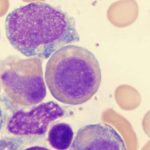The Latest Treatment for Bladder Cancer
While this form of cancer can be aggressive and painful, it is possible to recover fully. Bladder cancer is not a death sentence. With chemotherapy and a healthy lifestyle, many people have recovered and are enjoying life cancer-free. After years of successful treatment for bladder cancer, the medical industry has learned a lot about bladder cancer. With this newfound knowledge at our fingertips, we can help people survive bladder cancer so they can go back to enjoying life.
Current prognosis data
The general 5-year survival rate for patients with bladder cancer is 77%. However, survival rates depend on many factors, including the stage and type of cancer. The 5-year survival rate of patients with bladder cancer that has not spread beyond the inner layer of the bladder wall is 96%. The key is to diagnose bladder cancer early on, so treatment can begin as quickly as possible. The sooner treatment for bladder cancer starts, the higher the chance for a full recovery.
Bladder cancer symptoms
There are five common symptoms of bladder cancer. The most common one is blood in urine, which sometimes can go unnoticed. While there are many cases in which the naked eye can see blood, there are also instances where there is such a small amount of blood in the urine that it goes undetected. So, going to the doctor and getting an annual checkup is extremely important. If a doctor can detect early signs of bladder cancer, it can save your life.
UTI-like symptoms that will not go away and unexplained pain are also signs of bladder cancer. Any pain in the lower back can be associated with bladder cancer. A decreased appetite can also be a symptom, although this can be hard to pinpoint itself. Lastly, postmenopausal uterine bleeding can be a symptom of bladder cancer. If you have recently gone through menopause, take special care to pay attention to your body. Go to the doctor if you notice anything unusual.
MORE ABOUT BLADDER CANCER
Risk factors
Smoking is one of the main risk factors for bladder cancer. The body excretes the chemicals from cigarettes or pipes into urine, and those chemicals can cause significant harm to the body. Even a few years of smoking can cause bladder cancer.
Exposure to other chemicals can also be a risk factor for bladder cancer. Your kidneys filter harmful chemicals from your bloodstream into the bladder. If you have been exposed to arsenic and chemicals used in the manufacture of dyes, rubber, leather, textiles and paint products, you have a higher chance of getting bladder cancer.
Age and a previous cancer diagnosis can also put you at a higher risk for bladder cancer. As we age, the body has a harder time fighting off illness. In addition, anyone who has had any form of cancer in the past has a higher chance of having another type of cancer in the future.
Latest treatment for bladder cancer
Intravesical therapy is a newer treatment for people who have bladder cancer. With intravesical therapy, the doctor puts a liquid medication right into your bladder rather than administering it orally or injecting it into your blood. The medication is put in through a catheter that’s placed into your bladder through the urethra. The medication stays in your bladder for up to two hours, so it can affect the cells lining the inside of the bladder without having major effects on other parts of your body. Intravesical therapy is commonly used after transurethral resection of bladder tumor (TURBT). It’s often performed within 24 hours of the TURBT procedure. The goal is to kill any cancer cells that may be left in the bladder.
Intravesical chemotherapy is used to treat non-invasive bladder cancer. It is used for these early-stage cancers because medication given this way mostly affects the cells lining the inside of the bladder. It has little to no effect on cells elsewhere. This means any cancer cells outside of the bladder lining are not treated by intravesical chemotherapy.
SCHEDULE NOW
Treatment for bladder cancer in Raleigh and Wake Forest
If you or someone you love has bladder cancer, know that a full recovery is possible. Modern medicine and new treatments have made surviving bladder cancer the new norm. Make sure to research these treatments and think about which one is right for you. Then, talk to your doctor about your plan to beat this cancer and discuss your options. Taking care of your body is essential, so make sure to take the time you need to heal.
If you or someone you love has bladder cancer, contact us today. Our highly experienced oncology team can help you understand your treatment options.





